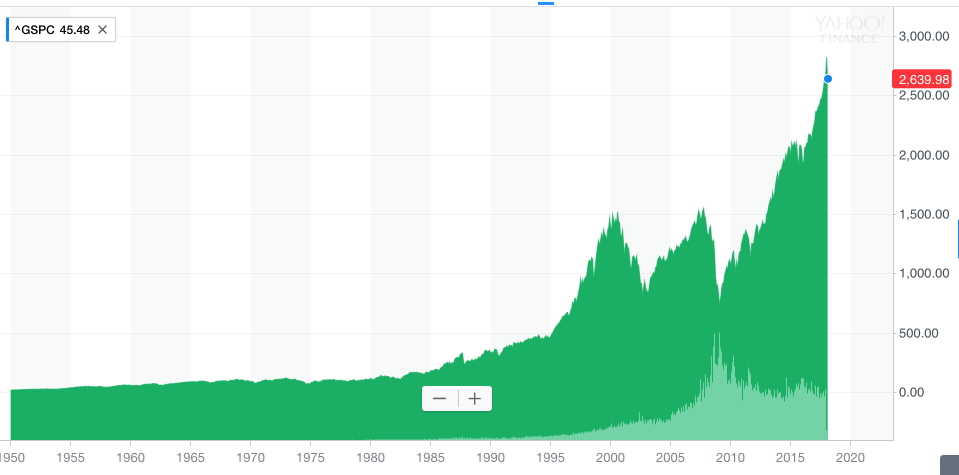Losing your retirement password is solid investment advice
During this week’s wild trading sessions, the websites of numerous brokerages experienced outages that left some investors feeling helpless.
But for some people, this could be a good thing. Moments of great turmoil drive people to action because it feels better than sitting on your hands and doing nothing. For those with a decent-sized investment horizon — for example, millennials saving for retirement — the best move might be to forget your password to your investment accounts.

“Don’t look,” says Judith Ward, a senior financial planner for T. Rowe Price. “Maybe it’s a blessing these websites are crashing.”
For people who are going to be invested for decades, checking account balances daily could just as likely lead to anxiety and emotional decisions. Ward recommends investors avoid emotion if possible, and that regular 401(k) contributions are a great way to do that. “In my view, when the markets are down, this is a gift for millennials because they’re able to accumulate shares at lower prices,” she said.
Focusing on the long term might seem like an old hammered point. But getting so much traffic that it crashes servers and renders websites and apps temporarily useless shows that many individual investors are still strongly short-term minded and emotional.
Emotional trading can easily backfire
It had been almost 400 days without a pullback, one of the longest streaks without a 5% drop. With that in the rear-view mirror, it’s easy to forget that they’re normal, scary as they feel.
Reacting emotionally, however can present an enormous problem to investors. In a recent research note from Merrill Lynch, analysts showed that panic-selling can wipe out potential gains. Generally, it pays not to miss the good days, even if you get the bad.

Jumping into a sell-off and trying to steer the ship through the storm is hard for an investor. You need to make two decisions if you try to do that, when to get out and when to get back in.
“It’s really difficult to time those perfectly because by the time you react, you may have missed the point where you should have gotten out, because we wait and see what happens,” says Ward.
The “buying opportunity” because the market is “on sale” isn’t just something that’s favored by those with long horizons. A JPMorgan analyst wrote that “we think that the ongoing market sell-off ultimately presents a buying opportunity.” Fundstrat reminded investors that “fundamentals remain positive for underlying economic growth.”
Investors with a longer timeframe benefited staying invested during corrections and recessions — especially given that some of the steepest dips were followed by some of the steepest climbs. Looking at history, stocks do generally go up.

But even if you don’t want to trust history — it’s not necessarily a predictor of the future and all that — you can always look at the fundamentals to evaluate the why behind a move. There are very good reasons for the short term squeeze that make sense, but the question investors need to ask is whether they affect things in the time-frame of their investment goals.
“As economies around the world are improving, this means higher interest rates and less stimulus from central banks. That’s why investors are throwing a hissy-fit. Not because anything is wrong,” noted Bankrate’s chief financial analyst Greg McBride on Monday. “Let’s look at the big picture – the economy is improving, more people are working, they’re seeing more money in their paychecks, and tax reform will boost the bottom line of businesses and households.”
Ethan Wolff-Mann is a writer at Yahoo Finance. Follow him on Twitter @ewolffmann. Confidential tip line: FinanceTips[at]oath[.com].
Trump promises to lower drug prices, but resists action
People are taking Equifax to small-claims court — and winning
Meet the man behind all those ‘Bitcoin Genius’ ads
Trump’s tax bill will make 2018 a wild year for divorce
Elizabeth Warren’s bill would thrash Equifax for another data breach
The crypto boom may have made criminals richer
How to stop people tracking whether you’ve opened their email